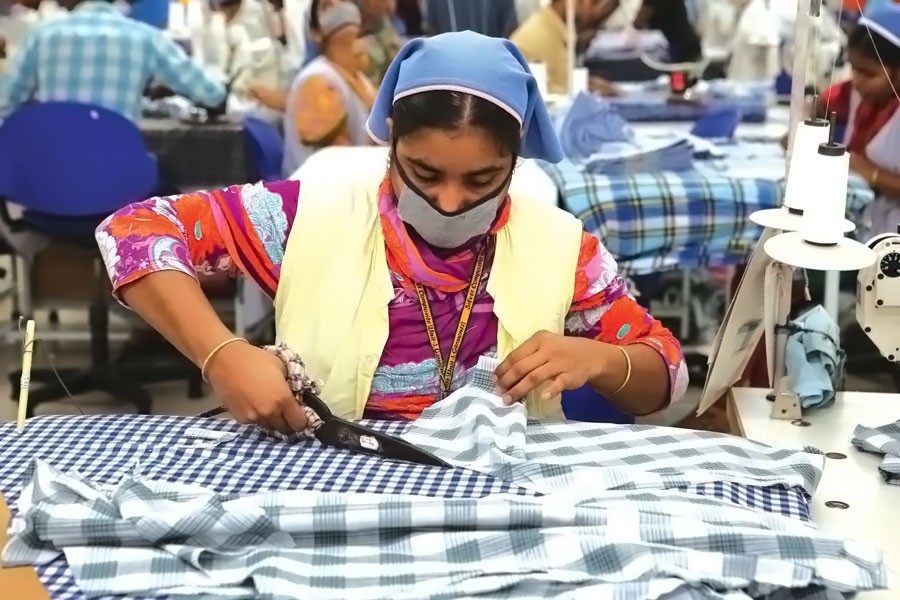The issue whether foreign investment in the readymade garment industry will contribute to its betterment or not is a much talked-about one. While the government is trying to attract foreign investment both within and outside the Export Processing Zones (EPZs), the move does not apparently mean to exclude any specific manufacturing sector beyond the ambit of foreign investment.
The government for quite sometime has been particularly interested to lure relocation of factories from countries like China, Japan and Korea in the wake of the soaring wages in these counties on the one hand and on the other, their look out for suitable locations for both relocation as well as setting up of export-oriented industries. Given the wage scenario and abundant workforce (with its easily trainable credentials), Bangladesh, despite many of its odds, occupies a predominant position to be a location of choice. And of all the sectors of manufacturing, apparel making, known as a key area of Bangladesh expertise, has definite reasons to attract overseas investors. The gains, observers believe, will be multiplier across a range of business activities for the investors. The issue has gained further focus in the wake of the covid-19-induced circumstances.
Newspaper reports pre-empt that a move is currently on towards facilitating foreign investment in RMG industry outside the EPZs. The move, reportedly, is facing opposition from the local apparel manufacturers and exporters. Understandably, the government will have to settle the score first with the local manufacturers and find a way out so as not to render things injurious to them.
It can well be guessed that much of the concerns of the local manufacturers stems from the fear that if the government allows unconditional approval to foreign investment in the RMG sector, there might be serious competition in the low-end segment products-- the key strength of Bangladesh's apparel industry. This fear is further heightened by the fact that China has already made it known that producing low-end apparels is no longer viable in that country given the increasing wages. So, provided with adequate opportunities, chances of relocation of foreign factories for low-end products are high.
In view of this, many industry people are inclined to confine foreign investment in the garment sector to the EPZs only. As for investment outside the EPZs, they had reportedly agreed to accept foreign investment on condition that those factories will produce up-end and fashion items for non-traditional and new markets.
Given the structure and composition of Bangladesh's narrow export basket, performance of the country's export is determined by a single parameter-- performance of the garment sector. However, it does not necessarily mean that foreign investment would pose genuine threats to the sector. Looking at the scenario too simplistically may not help, as there are counter-arguments that may reveal that the fear of the local manufacturers is more from better wage prospects for workers in the foreign factories, which in turn will have its effect on the local factories. It is a fact that the local manufacturers at the moment are rigid in their stand on wages. So, according to them, inviting foreign investment in the basic and low-end segment of apparels would call for undesirable chaos. In this context, critics may raise the all-important question: if foreign investors can afford to pay better and still make profits, why not the locals?
On a different note, there are quarters which believe that allowing foreign investment in the RMG sector might bring a change for the better in the overall work culture of the industry. Besides, it might bolster backward and forward linkage industries by way of increased works as well as technological improvement. It is in this context that economists hold that in order to increase production capacity and move for high value goods to get better deals from foreign brands for its apparel items, the RMG sector needs a huge amount of capital and skilled workforce where FDI can play an important role. They also believe that the ongoing US-China trade war has opened up a new opportunity for Bangladesh as investors are relocating their ventures from China to elsewhere.
A good deal of the arguments in favour or against FDI in the RMG sector is too sweeping to lead to a well-judged decision. The time now is unlike any other in the past, and with the covid-19 causing a major dent in production, marketing and supply chain, things should be under scrutiny in keeping with the emerging realities. The issue thus calls for a need to consider the pros and cons before firming up a decision. What is more important is to critically assess whether FDI will help deliver the sector from the ongoing and lingering pandemic-driven situation-- of fewer export orders and workers retrenched in thousands. Taking the stakeholders, including the manufacturers and exporters, on board would be a prudent step in that direction.


